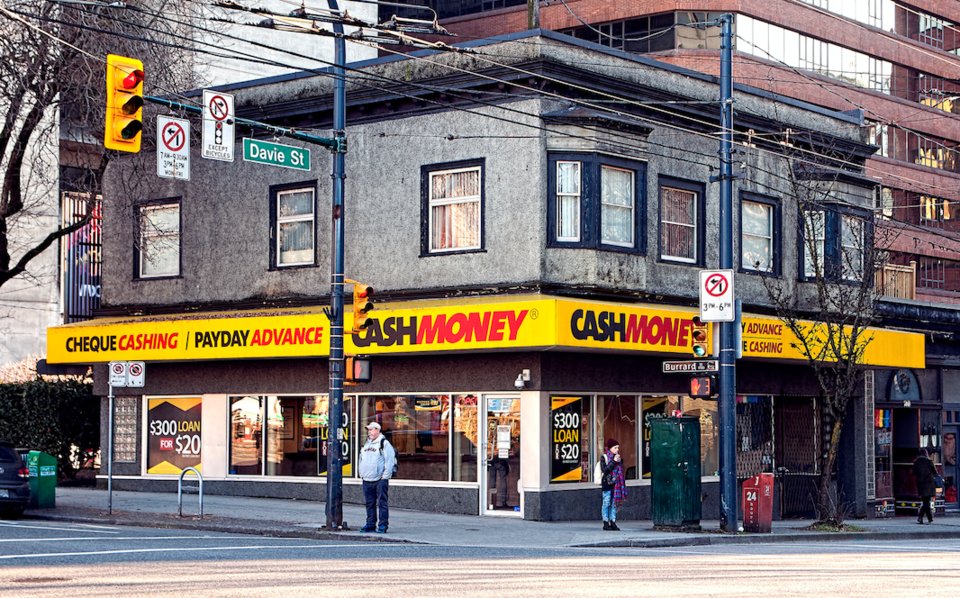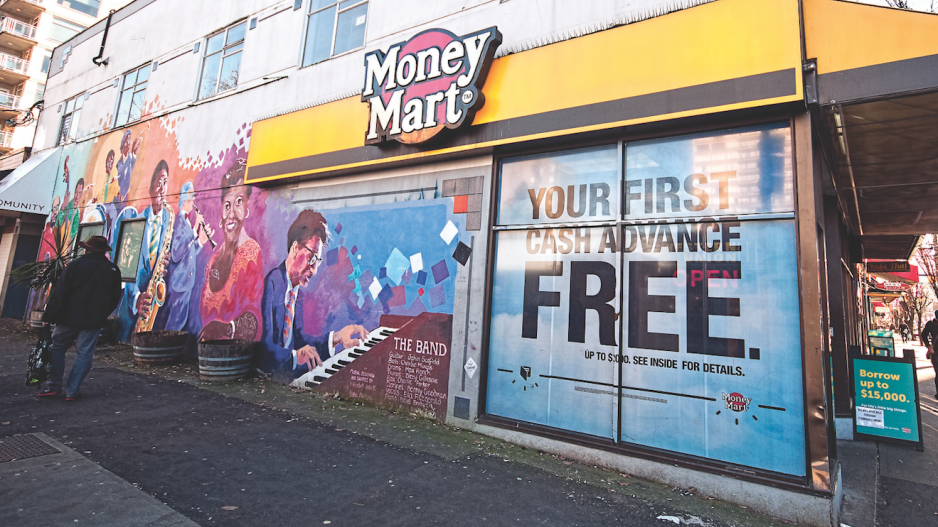The B.C. government lowered the maximum allowable interest rate on short-term payday loans on January 1, but the opposition New Democratic Party (NDP) says the government should do more to rein in that booming niche within the financial sector.
The payday-loan sector’s success is evidence that the government is not doing enough to make living affordable for those on the margins of society, the NDP says.
The BC Liberal government at the start of 2017 lowered the maximum allowable fee for a two-week, $100 loan in B.C. to $17, down from the previous $23.
That translates into an annualized interest rate of 443.21%.
The only province to have a lower maximum interest rate is Alberta, where that province’s NDP government lowered its maximum charge for a two-week, $100 loan to $15 last August.
“B.C.’s move to $17 from $23 for $100 is positive, and it’s something that we proposed, quite frankly, 10 years ago,” said NDP MLA Rob Fleming, who unsuccessfully tabled a private member’s bill to tighten payday-loan regulations in 2007.
That failed private member’s bill came after the federal government changed its laws to devolve to the provinces responsibility for regulating payday-loan companies.
Banks are still subject to federal usury laws, under which the annualized interest rate for loans may not exceed 60%, Fleming said.
“We need to look at why the mainstream financial services industry isn’t responding to apparent consumer demand for short-term lending products,” Fleming said.
He said he believes that banks are not trying to compete with payday-loan companies, by offering short-term loans that have a 60% annualized interest rate, because the 60% rate is too low given the risk that the loans will not be repaid.
“[Sixty per cent] might not be a reasonable rate for this industry, and we’re certainly not in favour of this industry disappearing,” he said, adding that the appropriate interest rate would be much lower than 443% but higher than the 60% threshold that the federal government still demands of banks.

(Image: Cash Money is one of the largest payday-loan companies in B.C. | Chung Chow)
Quebec’s government, in contrast, has outlawed payday loans.
How payday-loan companies are regulated is increasingly important in B.C. because the province leads the country both in the percentage of residents who are customers of payday-loan companies and in the growth rate of that customer base, according to a 2016 study by Vancity.
That study found that 198,003 British Columbians took at least one payday loan in 2014. That is 58% more than the 125,172 British Columbians who did the same thing two years earlier.
“The high number of payday loans says something about overall affordability in the province,” said Fleming, who represents a Victoria riding.
“People are coming up short when paying their bills. Some of those bills have been going up dramatically under this government, whether it is MSP [Medical Services Plan] bills that are $150 now as of January 1 for a couple, or BC Hydro bills. I can tell you that if people can’t get their power reconnected, many of my constituents go directly to the payday lending office.”
BC Hydro is a Crown corporation and its rate hikes need provincial approval.
B.C. Minister of Public Safety Mike Morris, who is also the province’s solicitor general, defended his government’s action on the payday-loan file.
In 2009, we were one of the first provinces in Canada to regulate payday lenders to protect consumers who use these services,” Morris said. “Now we have built on those protections by lowering the maximum allowable charge for these short-term loans to make them more affordable for people.”




